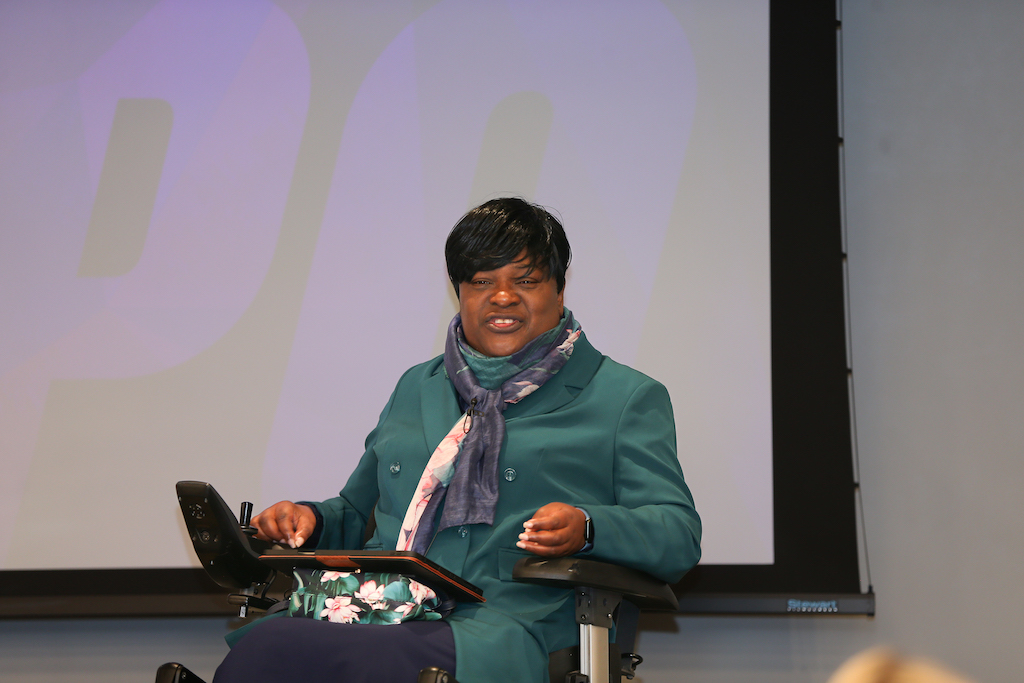The events industry needs to do better at accommodating disabilities and creating more inclusive environments and experiences, according to Lady-Marie Dawson-Malcom, corporate partnerships coordinator at the Spinal Injuries Association and one of our expert speakers at micebook EXPO.
Marie-Dawson, who sustained a C5 complete spinal cord injury after a fall, is an accessibility advisor on several National Panels where she advises on access to public transport and services for disabled individuals, whilst still working full-time.
During our closing plenary session at micebook EXPO last Monday, facilitated by our host Neil Basing-Hudson, Marie-Dawson shared her inspiring personal story while delivering a clear message that less talk and more action is needed when it comes to ensuring events are accessible for all.
“I have observed that there is an interest in making things more accessible in the events industry, which is good, but it’s important to not just pay lip service. It’s not the disability that impairs us, it’s the environment,” she said.
She shared an occasion where she was asked to speak at a large trade show last year but found it difficult to get around the venue because the floor was uneven, resulting in her almost falling out of her wheelchair.
“The events industry is not doing enough and unfortunately catering to disabled attendees is usually an afterthought. But moving a few chairs and adding a ramp is not enough, accessibility should be on the agenda at the initial planning stage of any event,” she said, adding that she needs to consider what would happen in an emergency and how she would get out of an event venue. “There needs to be a personal emergency evacuation plan for anyone with a disability.”
She called on planners to make accessibility one of the first things discussed rather than last. “You need to think, who do we want to come to our event and how can we make that happen. If you don’t know, reach out to charities, and ask the questions.”
She added that if clients are concerned about the cost of making events more accessible, they just need to consider the spending power of disabled people, which is $13trillion worldwide.
During the session, Marie-Dawson also covered the importance of using the right terminology, for example non-disabled rather than able-bodied and wheelchair user rather than wheelchair bound. “Asking what the right terminology is, we won’t get offended if you ask, but we might when you consistently get it wrong.”
When asked how the events industry can attract a more diverse pool of talent, she said: “You need to develop a DE&I policy and from the offset start to think about how you can become a disability confident employer and then actively share that message. When you advertise for a role, make it explicit that people with disabilities or other protected characteristics are welcome to apply. Go to the different charities that represent minority groups and tell them you are willing to embrace all different people.
“I know people with PHDs who can’t get jobs because they are disabled. We have so much to offer but are not given the opportunity. By just having non-disabled white people working for you, you are not reflecting society and limiting what you as a company have to offer the wider public.”

